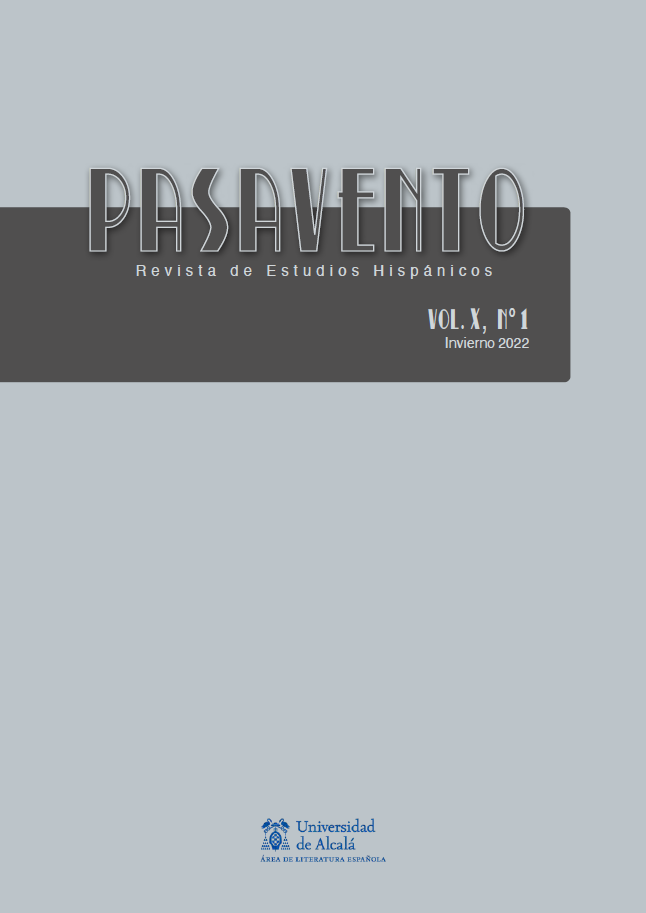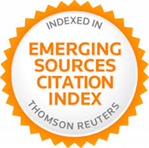Sex, Gender and Species Defectors
Franz Kafka and Paul B. Preciado
DOI:
https://doi.org/10.37536/preh.2022.10.1.1460Keywords:
Defector, Species disidentification, Trans, Preciado, KafkaAbstract
Yo soy el monstruo que os habla (I Am the Monster Who Speaks to You) by Paul B. Preciado (2020), constitutes a “report”, as its subtitle reads: “Report for an Academy of Psychoanalysts”, on his status as a trans subject. In the emphatic and often poetic style that characterizes Preciado’s writing, his account is mirrored in Franz Kafka’s story “Report for an Academy” (1917). Far from being a simple highbrow reference, Preciado’s text echoes Kafka’s on numerous occasions, to the point that some of its arguments are not clear if they are not contrasted with the source text. Indeed, if we do not read Preciado’s text as a palimpsest in which the traces of what was written previously are preserved, perhaps we cannot easily appreciate the scope of his proposal of “disidentification” which, beyond gender, even reaches that of the human species. This article attempts a comparative reading of I Am the Monster Who Speaks to You and “Report to an Academy”, alongside James Marsh’s documentary Project Nim (2011), in order to contrast them with another form of radical disidentification, no longer of humanity, but of its opposite pole, animality, as it is conceived by Western culture.
References
Berger, John (1980). “Why Look at Animals?”, in About Looking. Nueva York: Pantheon Books, 1-26.
Bourdieu, Pierre (2004). Esquisse pour une auto-analyse. París: Raisons d’agir.
Butler, Judith (2016). “Introduction”, in Jacques Derrida, Of Grammatology, Fortieth aniversary edition, trad. Gayatri Ch. Spivak. Baltimore: Johns Hopkins University Press: i-xxx.
Butler, Judith (2017). Breaks in the Bond. Reflections on Kinship Trouble. Londres: University College London, Department of Greek and Latin, Housman Lecture.
Cixous, Hélène (2003). “La risa de la Medusa”, in Deseo de escritura, ed. Marta Segarra, trad. Luis Tigero. Barcelona: Reverso, 17-27.
Cixous, Hélène y Jacques Derrida (2004). Lengua por venir. Langue à venir. Seminario de Barcelona, ed. Marta Segarra. Barcelona: Icaria.
Deleuze, Gilles y Claire Parnet (1996). “Animal”, in Abécédaire de Gilles Deleuze [entrevistas con Claire Parnet]. París: Vidéo Editions Montparnasse.
Derrida, Jacques (1988). Signéponge. París: Seuil.
Derrida, Jacques (1992). “Il faut bien manger ou le calcul du sujet”, in Points de suspension. París: Galilée, 269-301.
Duval, Elizabeth (2021). Después de lo trans. Sexo y género entre la izquierda y lo identitario. Algemesí: La Caja Books.
Fontenay, Élisabeth de (1998). Le Silence des bêtes. La philosophie à l’épreuve de l’animalité. París: Fayard.
Freud, Sigmund (1976). “La feminidad”, in Nuevas conferencias sobre el psicoanálisis y otras obras (1932-1936). Obras completas, vol. XXII, ed. James Strachey, trad. José L. Etcheverry. Buenos Aires: Amorrortu, 104-125.
Herzfeld, Chris (2012). Petite histoire des grands singes. París: Seuil.
Kafka, Franz (2011). “Informe para una Academia”, in Informe para una Academia y otros textos, trad. Jorge Segovia y Violetta Beck. Vigo: Maldoror, 2011, 7-21.
Kafka, Franz (2012). La metamorfosis y otros relatos, trad. Mauro Armiño. Madrid: Edaf.
Kofman, Sarah (1984). Autobiogriffures. Du chat Murr d’Hoffmann. París: Galilée.
Lawlor, Leonard (2007). This Is Not Sufficient. An Essay on Animality and Human Nature in Derrida. Nueva York: Columbia University Press. DOI: <https://doi.org/10.7312/lawl14312>.
Leibovici, Martine (2013a). “Le ‘Verstehen’ narratif du transfuge: Incursions chez Richard Wright, Albert Memmi et Assia Djebar”, Tumultes, 36: 91-109. DOI: <https://doi.org/10.3917/tumu.036.0091>.
Leibovici, Martine (2013b). Autobiographies de transfuges: Karl Philipp Moritz, Richard Wright, Assia Djebar. París: Le Manuscrit.
Leibovici, Martine (2014). “De Ricœur à Foucault: en finir avec l'herméneutique de soi? Quand transfuges et parias racontent leur vie”, Tumultes, 43: 107-121. DOI: <https://doi.org/10.3917/tumu.043.0107>.
Lejeune, Philippe (1996). Le Pacte autobiographique (nueva ed. aumentada). París: Seuil.
Marsh, James (2011). Project Nim (Proyecto Nim). Red Box Films, Passion Pictures y BBC Films: Reino Unido.
Missé, Miquel (2018). A la conquista del cuerpo equivocado. Barcelona/Madrid: Egales.
Mulvey, Laura (1988). Placer visual y cine narrativo, trad. Santos Zunzunegui. Valencia: Centro de Semiótica y Teoría del Espectáculo. Documentos de Trabajo Eutopías.
Munguia Aguilar, Rocío (2019). Encres métisses, voix marronnes: Mémoires d’esclaves noires dans le roman antillais francophone et le roman latino-américain hispanophone. Tesis doctoral. Université de Strasbourg.
Preciado, Paul B. (2008). Testo yonqui. Madrid: Espasa Calpe.
Preciado, Paul B. (2016). Manifiesto contrasexual. Barcelona: Anagrama.
Preciado, Paul B. (2019). Un apartamento en Urano. Crónicas del cruce. Barcelona: Anagrama.
Preciado, Paul B. (2020a). Yo soy el monstruo que os habla. Barcelona: Anagrama.
Preciado, Paul B. (2020b). Je suis un monstre qui vous parle. París: Grasset.
Preciado, Paul B. (2021) “Devenir un humain avec un chien”. Libération, 2 de febrero. Accesible en <https://www.liberation.fr/idees-et-debats/opinions/devenir-un-humain-avec-un-chien-20210213_AHC3ZHLYWJANVLD3QNGXNJRADI/> (10 de junio de 2021).
Radick, Gregory (2019). “Kafka’s Wonderful Ape”, Times Literary Supplement, 1 de marzo. Accesible en <https://www.the-tls.co.uk/articles/kafkas-wonderful-ape-red-peter/> (10 de junio de 2021).
Segarra, Marta (2014). Teoría de los cuerpos agujereados. Santa Cruz de Tenerife: Melusina.
Segarra, Marta (2022). Humanimales. Abrir las fronteras de lo humano. Barcelona: Galaxia Gutenberg.
Downloads
Published
How to Cite
Issue
Section
License
Copyright (c) 2022 Pasavento. Revista de Estudios Hispánicos

This work is licensed under a Creative Commons Attribution 4.0 International License.








